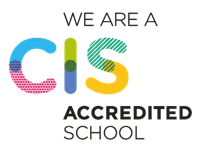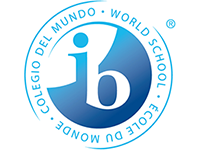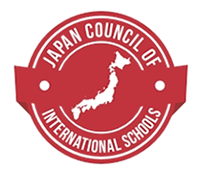Mission
K. International School Tokyo provides academically motivated children from diverse cultural and social backgrounds with a high-quality education in a safe and supportive environment in order to develop competent, academic and compassionate individuals who make meaningful contributions to our global community.
Revised February 2020
Vision
K. International School Tokyo seeks for all learners to demonstrate excellence in academics, compassion for others, and a commitment to making the world a better, more peaceful place.
Revised October 2018
Guiding beliefs
K. International School Tokyo believes that:
- Being a member of the school community requires a belief in and a commitment to uphold the school’s mission and vision as well as a dedication to its guiding beliefs.
- A safe and supportive environment is one which encourages respect, responsibility, tolerance and compassion.
- A high-quality education is defined as promoting academic excellence, international understanding, moral character and lifelong learning.
- Education is a shared partnership of mutual cooperation between students, parents/caregivers and the school.
- Cultural diversity enhances our school community as well as our understanding of the world.
- Central to being internationally minded is recognizing that diverse, rich cultures exist in all regions of the world, and demonstrating a tolerance for the varied beliefs and traditions of these cultures.
- The language, customs, traditions and cultural beliefs of our host country, Japan, serve as an important resource in enriching the learning experience.
- A regularly reviewed, comprehensive international curriculum that is linked across the school, is essential in preparing students for their future lives.
- Being a global citizen requires knowledge and skills in the use of technology; however, the ability to function independently and act promptly in the real world also requires core knowledge and skills independent of technology.
- Special emphasis should be placed on development of skills in language and mathematics as essential learning tools.
- Setting high academic expectations supports the development of strong academic skills which increase the chances for future academic success.
- Students learning through a second language require more learning time and a greater degree of effort and support than those learning through their first language.
- Native language development and maintenance is important in developing identity, self-esteem and cognitive ability, and ultimately contributes to academic success.
- Maintaining a safe and collaborative learning environment free from bullying and harassment requires the support of the school community as a whole in taking appropriate action when necessary.
- Reinforcing appropriate dress and behavior standards promotes a respectful, responsible and safe school environment.
- The accessibility of educational opportunities at the school is dependent on the establishment and sustainment of systems that take financial needs into consideration as well as on the maintenance of economical and efficient fiscal management.
Revised May 2022






